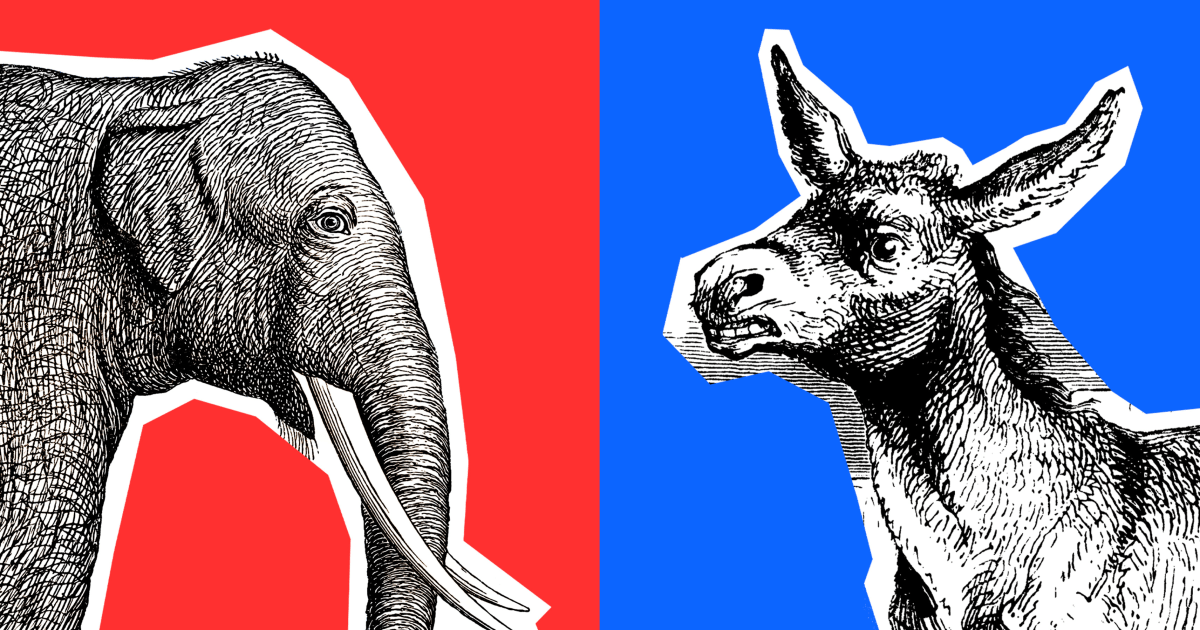The Shared Distrust in U.S. Politics: Survey Insights
In the complex landscape of U.S. politics, the search for honesty seems increasingly elusive. A recent NBC News Decision Desk Poll, powered by SurveyMonkey, sheds light on how Americans perceive the integrity of politicians from the two major parties. The survey asked respondents to rate the honesty of politicians on a sliding scale, ranging from "always honest" to "always dishonest." The findings reveal a striking consensus: neither party has a distinct advantage in the trust department.
Public Perception of Political Honesty
The results are telling—many Americans believe that politicians are, at best, often dishonest. According to the poll, 48% of respondents characterize Republican politicians as "sometimes" or "always dishonest," while a slightly smaller 44% apply the same label to their Democratic counterparts. This shared skepticism reflects a growing disillusionment with traditional political institutions.
Around one-third of survey participants perceive politicians from both parties as "about equally honest and dishonest." Interestingly, only about 20% of adults think politicians from either party embody the qualities of being "sometimes" or "always honest." Such cynicism fueled by perceived dishonesty highlights a broader trend of distrust in political leadership.
The Global Context of Political Distrust
This lack of faith in political figures isn’t confined to the U.S. It’s emblematic of a global phenomenon where citizens are increasingly turning to political outsiders, seeking candidates who challenge the established norms. The erosion of public trust has significant ramifications, not only for elections but also for the very functioning of democratic systems.
Political Leaders Under Scrutiny
The survey’s results also touch on the contentious climate surrounding prominent figures like President Joe Biden and former President Donald Trump. Although Biden campaigned on the premise of "truth over lies," he faces critiques regarding his transparency and fitness for office. Some Americans question whether he has been candid about his health and the challenges he faces in leadership. On the other hand, Trump, often criticized for his tendency to stretch the truth, remains a polarizing figure. The ongoing debates surrounding both leaders underline a deeper, collective frustration regarding honesty in governance.
Distrust Within Political Parties
Interestingly, distrust isn’t solely directed towards the opposing party. Many Americans are introspective about their own political affiliations. A significant number of Republicans and Democrats admit that their own party exhibits dishonest tendencies. More Republicans (22%) than Democrats (14%) perceive dishonesty among their party members.
A closer look reveals nuanced differences within the parties. For instance, 20% of those who identify with Trump’s "Make America Great Again" movement express doubts about the honesty of GOP politicians, while this figure rises to 25% among more traditional Republicans. Similarly, within the Democratic ranks, 18% of individuals aligned with progressive causes question the integrity of their own party, compared to just 11% of mainstream Democrats.
The Fight for Representation
When asked which party fights for people like them, a significant 37% of Americans claim that neither party does. In contrast, 24% believe that the Democratic Party prioritizes their interests, while 22% advocate for the Republican Party. Only 18% feel that both parties serve their needs. This sentiment of alienation emphasizes the gap between political messaging and public expectation.
The Unfavorable Image of Political Parties
The unfavorable view of both political parties is striking, pushing many into a state of disengagement. The poll indicates that 57% of adults view the Democratic Party unfavorably compared to 43% who hold a favorable view. Similarly, the GOP is viewed unfavorably by 56% of respondents, with only 44% expressing a favorable opinion.
Survey Methodology
The NBC News Decision Desk Poll surveyed a comprehensive sample of 19,410 adults online between May 30 and June 10, with a margin of error of plus or minus 2.1 percentage points. Such a large sample size helps ensure the representativeness and reliability of the data, offering a substantive look at the trends shaping American perceptions of political honesty.
Navigating the Complexity of Trust
As this survey reveals, the quest for honesty in U.S. politics is marred by widespread skepticism. With both major parties facing significant scrutiny from the populace, the ongoing dialogue about integrity, representation, and trust only becomes more critical. The future landscape of American politics will be shaped by how leaders address these concerns and whether they can rebuild the trust that has been so profoundly eroded.


